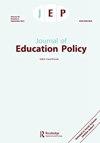What is the problem represented to be in China’s world-class university policy? A poststructural analysis
IF 3
2区 教育学
Q1 EDUCATION & EDUCATIONAL RESEARCH
引用次数: 3
Abstract
ABSTRACT Underlying current research on China’s world-class university (WCU) policy approaches are analytical foci that privilege the agency of social actors and the problem-solving approach to policy analysis. Foucauldian poststructuralists draw our attention to policy document, which is seen as a discourse that organizes and administers society. Inspired by Foucault, Carol Bacchi’s ‘What’s the Problem Represented to Be?’ approach (WPR) views policy document as a technology of governmentality. As proposed solutions to a problem, policy text produces the very problem that it seeks to address. Carol Bacchi draws our analytical attention to the rationalities, technologies of governing and subjectification effects created by particular problem representations in the WCU policy. Using WPR, this paper shows that WCU is represented as merely a technical, managerial and organizational problem. Such representations naturally reify WCU in material terms, such as research output, and in a temporal form of state planning. Genealogically, the root of WCU can be traced to the neoliberal movement of knowledge economy. However, Shanghai Ranking overturned this center-periphery landscape in disseminating the concept of WCU. China’s one-party state means that WCU is pursued at the expense of sacrificing social sciences and subjecting academics and students to become ‘red experts.’中国的世界一流大学政策代表了什么问题?结构后分析
摘要当前对中国世界一流大学政策方法的研究主要集中在分析焦点和政策分析中的解决问题方法。傅的后结构主义者将我们的注意力吸引到政策文件上,它被视为组织和管理社会的话语。受福柯的启发,卡罗尔·巴奇的《代表的问题是什么?》方法(WPR)将政策文件视为一种治理技术。作为一个问题的拟议解决方案,政策文本产生了它所寻求解决的问题。Carol Bacchi提请我们注意WCU政策中特定问题表示所产生的理性、治理技术和主体化效应。利用WPR,本文表明WCU仅仅是一个技术、管理和组织问题。这种表述自然地将WCU具体化为物质方面,如研究产出,并以国家规划的时间形式。从谱系上讲,WCU的根源可以追溯到知识经济的新自由主义运动。然而,《上海排行榜》在传播WCU理念的过程中颠覆了这种中心-外围格局。中国的一党制国家意味着,追求WCU是以牺牲社会科学和让学者和学生成为“红色专家”为代价的
本文章由计算机程序翻译,如有差异,请以英文原文为准。
求助全文
约1分钟内获得全文
求助全文
来源期刊

Journal of Education Policy
EDUCATION & EDUCATIONAL RESEARCH-
CiteScore
8.10
自引率
8.00%
发文量
25
期刊介绍:
The Journal of Education Policy publishes original, critically and theoretically informed research that discusses, analyses and debates policymaking, policy implementation and the impact of policy at all levels and in all facets of formal and informal education. The journal is interested in analysis and theorisation of policy that is transposable, that has generic interest and relevance - national policy case studies would need to be conceptually and/or methodologically generalisable. The journal also publishes work that presents new methods of research and research studies that are experimental and innovative. The journal offers a forum for theoretical debate, as well as historical, philosophical and comparative studies, across different countries, contexts and levels of education. A valuable resource for academics, researchers, educators and policy makers, Journal of Education Policy provides rigorous and original insights into educational policy development, implications and global impact.
 求助内容:
求助内容: 应助结果提醒方式:
应助结果提醒方式:


